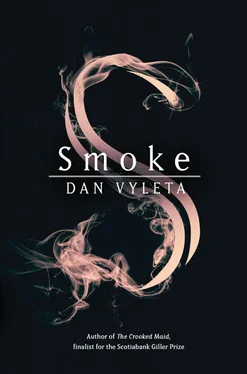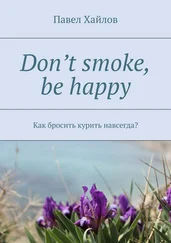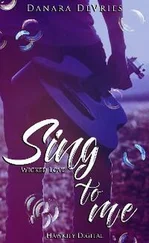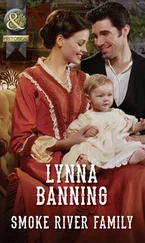“Tell him, Livia,” Thomas says without turning, “Tell him it is dangerous; madness. He loves you. He will listen to you.”
They both start when she closes the gap and puts a hand on each of their arms.
ф
Oh, how well she understands them both. Everything is written in their Smoke.
Their friendship is in there. Charlie’s doubt and Thomas’s secret longing for the Smoke. She is there, too, flesh and blood, the things each wants to do with her; their focussed wonder at that body beneath her dress. It is as though they have all shed their clothes.
“Tell him,” Thomas says again, exhaling the words into Charlie’s face.
Then he appears to remember that it was she, Livia, who led them back to Julius’s corpse. The thought diminishes him, slumps his shoulders, pulls down his chin.
“You too, then?”
He does not wait for her nod.
“How eager you both are,” he goes on, spiteful now, all alone, “to dance to milady’s tune. She blew you a kiss, Livia, and taunted Charlie about his father. And here you are ready to do her bidding. In the name of the people! Do you think the people want it, the chaos you’ll be starting for them here?”
Before Livia can answer, Charlie does.
“ I want it,” he says, half in anger, half in wonder at himself. “I need it. Otherwise, Father will. .” He trails off, catches himself, a hint of amusement lightening his Smoke. “That’s awfully selfish, isn’t it?”
Thomas frowns and smokes and walks away.
ф
He does not go far. Two steps. The no-man’s-land between Julius’s haggard body and the rim of the closest pool. Livia follows as he must have known she would, until she stands as close as she did before. It’s a choreography of sorts: some birds, her mother once told her, dance before they mate. Thomas is calmer away from Charlie, sadder.
“We don’t know a thing about it, Livia. How long will it last? A few weeks, a month, your mother said, but how can she know? Not rape, she promised, not murder. Everyday sins. A fever of passion. All urges laid bare, all secrets shared.” He grimaces, winces when she takes his hand. “Even if your mother is right — if her dark fuse burns itself out in the lighting of a gentler fire; if the world does not choke on its store of anger; if we all bare our souls to one another and are not appalled by what we find. . imagine it, Livia. A whole world letting go of reason. Chaos; confusion. Nobody working the fields.”
“It’s winter, Thomas. The fields don’t need working.”
“Still. A volatile world. Don’t underestimate its darkness. Every argument that draws a knife, every man beaten, every woman forced: it’ll all be our fault.”
“Yes. And if we don’t: every child sewn into some apparatus; every prisoner made to roll cigarettes; every lie told from dawn till dusk; every year that passes without change or hope. That too will be our fault.
“But it’s more than that,” Livia continues. “She loves me, you see. Mother. She watched me trying to become holy, all the while afraid I would go mad like Father.” She smiles, crooked, tender; a hint of flirtation in her words. “I’m angry with her. But it’s hard to resist love. Don’t you think?”
Thomas winces, makes fists.
“Charlie is right,” he says at last. “I am afraid.” He studies her, fiercely, like an enemy. “What if I get lost in all the Smoke? What if I go mad and turn into a beast?”
She returns his gaze, at a loss how to answer.
Then Charlie is there. He is smoking; repeats her mother’s gesture, cups Thomas’s face.
“Then we will drink you and go mad together.”
“Will you?” Thomas asks, more out of despair than doubt. “What ever happened to compromise, Charlie?”
ф
Julius’s body floats gently on the water. Thomas expected it to sink. He was surprisingly heavy to carry, each withered limb a deadweight swinging on its joint. Once they lower him, however, the Soot is as though magnetised by him, dresses and shrouds him, like a sodden sheet, so that the whole pool becomes one with his lean figure. They leave Thomas to fetch the blood. Charlie is sitting on the pool’s edge, his hands and feet in the water, holding on to Julius and supporting his head as though it is important that he does not drown. Livia, in turn, has her hands on Charlie’s shoulders, to reassure him and help him up, when the time comes. And so Thomas goes to retrieve the blood in its little beaker, swishes it around like wine in a glass. How easy it would be even now to hurl it across the room, let it shatter in a dirty corner; or stumble, fall, as though by accident, and crush it under his weight.
They assemble at the pool’s edge. Charlie sitting, Livia hunched, Thomas upright. It would make a good picture, Thomas thinks; the black of the pool, the dull, pulsing light of the lamps overhead. Charlie’s expression has changed in the past few minutes. The fierceness is gone; there has been time to think. He has opened some door inside himself , it flashes through Thomas, and doubt has crept in. Perhaps, then, he will recant. Thomas is surprised to find he is disappointed as well as relieved.
Charlie looks up at him, too honest to mask his doubt.
“We can’t have it, can we? Just a little Smoke. Enough to make us human?” He pauses, frowns, corrects himself. “But that’s just it, isn’t it? How much is enough?”
He moves his hand through the dun liquid, scoops some up, holds it next to Julius’s charcoal cheek. Thomas thinks he understands what troubles Charlie. It is wrong, somehow, that evil should be a question of proportion; that this much Smoke should be the weave of life, and that much produce murder; and that no Smoke at all should produce a cruelty of a different sort. Charlie has a tidy mind: he must feel there should be more system to life. All at once Thomas wants to comfort the friend he was ready to fight before.
“Two, three weeks during which Smoke takes over the world,” he muses. “Maybe longer. A carnival of passions. Black rain and all that. Do you think, Charlie, this means we won’t have to go back to school?”
ф
The smoking starts halfway through their giggles. It rises easily, naturally, articulates their tension, their fears, the feeling of standing on a precipice, toes in the void.
We don’t know what we are starting.
No. But we do know how things are at present.
And after? When the Quickening has burnt itself out. What will the world be like then?
But it is not like that, the Smoke, it has no use for words. It speaks in images instead, in feelings referencing memories that, recounted later, across a pillow in the dark, will appear both familiar and strange. In this wordless realm these whispers are not something yet, are but the possibility of thought; like a joy neither voiced nor performed, shapeless and real. And all the while the Smoke surrounds them, humming their melodies, sneaking its tendrils across the borders of their individual selves.
Thomas’s Smoke is the darkest, raw and confused. It sings his fear — of Julius; of becoming like him; of being abandoned for his crimes — and the bliss of self-forgetting. His father is in his Smoke, cradling a pewter mug. Livia, too, her shirt wet and clinging to her chest. Charlie: befriending him on that first day of school. His mother dying; a bullet slamming into his head. A nurse’s kiss; a boxing bout; bones breaking under knuckles. Gypsy vagrants fighting, rutting in the dirt. A church floor, littered and noble; a drunken priest. Hope.
Charlie’s Smoke is different, more marshalled and orderly, a procession of people sketched in white, tan, and grey. There is the woman in the woods, dressed in her shift and smoking as naturally as she is breathing. There are Renfrew and Eleanor, sewn into her harness of leather and steel. Thomas, Livia, flushed and beckoning; bare shoulders entangled under a linen sheet. His parents, stiff-backed, sitting in their ill-begotten house and wondering whatever happened to their son. A room of coachmen, huddled together on the floor against the cold. The tattoo of a mermaid, her bosom blinking with each movement of the coachman’s thumb.
Читать дальше












